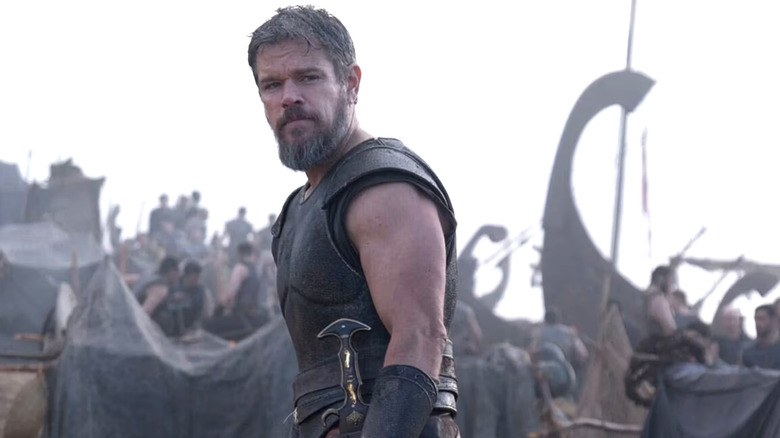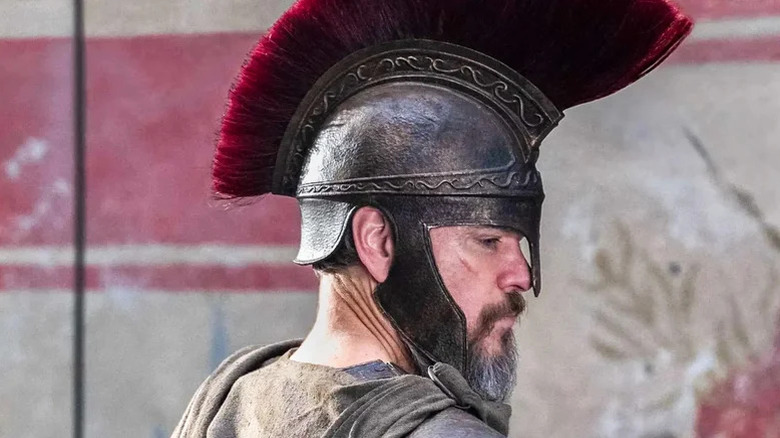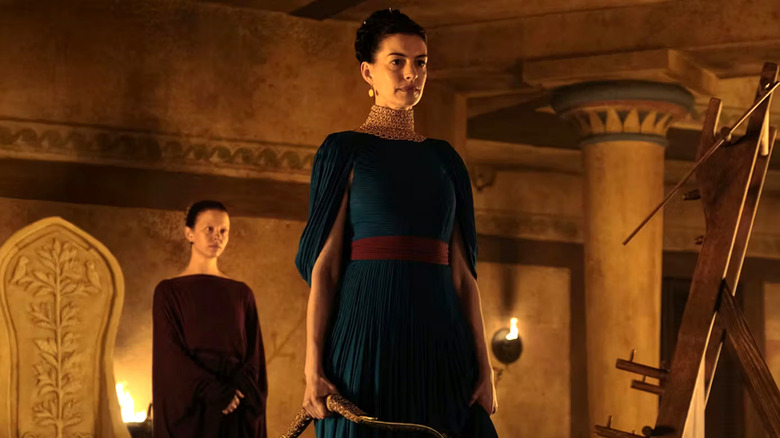We may receive a commission on purchases made from links.
Everyone’s still wondering how Christopher Nolan will pull off his upcoming adaptation of “The Odyssey,” a story that is both so different and yet so similar to the sort of movies Nolan has made already. On one hand, it’s odd to see Nolan making a movie that goes this far back in time and engages with straightforward fantasy elements. On the other hand, it seems fitting for Nolan to tell a long, epic story about a troubled-yet-impressive man who is tragically separated from his family. “Memento,” “Batman Begins,” “Interstellar,” all share a ton of structural similarities with the classic story.
For those trying to predict exactly which angle Nolan will take on this adaptation, a recent interview of his with Empire Magazine has given us another clue. In a now-deleted post, editor-in-chief Nick de Semlyen revealed that Nolan “namechecked (and quoted from) the Emily Wilson translation.”
The reveal, which was falsely interpreted by some as Nolan saying he prefers Wilson’s translation, set off a lot of backlash online. “Not a good sign boys,” wrote one viral post on X (formerly known as Twitter), while another popular post responded with a gif of someone vomiting profusely. Other people supported the supposed revelation, declaring that woke is finally back and that Nolan is the “closest thing we have to a true woke-chud synthesis.”
All that discourse was undermined, however, by de Semlyen’s quick clarification that Nolan didn’t actually call Wilson’s edition his favorite. As Semlyen explained, “Just to clarify, he didn’t outright say it was his favourite — just name-checked it while discussing Odysseus’ character…”
So, why such a commotion over the Wilson edition? If Nolan did prefer Wilson’s translation, why would that be such a big deal?
Emily Wilson’s translation is often critiqued as ‘woke’ and over-simplified
The main criticism of Wilson’s translation is that it makes choices that appear to criticize or undermine Odysseus. Its oft-cited opening line describes Odysseus as a “complicated man,” whereas most previous versions describe him with more impressive, larger-than-life language. Odysseus is indeed a complicated figure, whose actions often blur the lines between courageous and sleazy, noble and cruel. (I’d argue Nolan dealt with a similarly ambiguous figure in “Oppenheimer.”)
During Odysseus’ actions, Wilson’s translation tends to give more space towards the sleazy and cruel side of things, whereas the editions her critics prefer tend to lean on the “courageous and noble.” The differences are subtle, however; I’d argue Odysseus comes across as morally gray in basically every popular translation.
The other common accusation is that Wilson dumbed the story down to appease modern readers with low attention spans. They’ll note that her prose is more straightforward than previous translator’s prose. Combine this with a text that’s more critical of the male hero than previous versions, and now there’s a whole legion of people insisting that Wilson is trying to ruin the classic story with a simplistic feminist agenda.
One thing these criticisms don’t often seem to fully consider is how these other translations were also products of their time. Much of our modern understanding of what “The Odyssey” is supposed to be comes not from the original text but from choices made by previous translators — choices that were themselves driven by cultural and ideological assumptions inherent to those translators’ time and place. Other translations’ decisions to not explicitly refer to the Odysseus’ slaves as slaves, for instance, was not an objective choice but what many scholars argue was a deliberate sanitizing of the original narrative.
Wilson’s translation of ‘The Odyssey’ is good, actually
Another aspect of “The Odyssey” that Wilson’s critics often take for granted is the idea that the poem is supposed to sound old-fashioned. As the New Yorker’s Judith Thurman put it in her 2023 profile of Wilson:
“She rejects historical reënactments that ‘archaicize’ Homer’s diction — ‘he didn’t sound archaic to the Greeks’ — and modern renovations that expand his footage. The opening of Robert Fagles’ widely admired Odyssey, she points out, uses two English words for every Greek one. Her own translation hews strictly to the original line count, and it retains the power of a storyteller’s voice to fix itself in your memory.”
Although I for one have enjoyed the Fagles edition, it lacks the sense that this is a story that could’ve ever been told orally. Homer’s “Odyssey” was told by roaming bards and singers, with the goal of being easy to follow for their contemporary listeners. Among the popular English translations of “The Odyssey” today, Wilson’s translation stays truest to this idea. It’s the one that flows best when read aloud, whose scenes are described with the most immediacy.
As poet/classicists A.E. Stallings said in that New Yorker profile, “Every translation is a compromise, even a great one.” Wilson’s choice to prioritize clarity over grandeur is a choice that isn’t for everyone, but it’s definitely a choice worth respecting. Once you look past the larger culture war Wilson’s translations have gotten wrapped up in, you’ll find a translation that makes for a thoughtful, entertaining read, written by someone who has clearly spent a lot of time studying and admiring the text. You don’t have to prefer Wilson’s translation, but you also don’t have to act like Nolan’s adaptation is doomed just because he doesn’t hate it.











